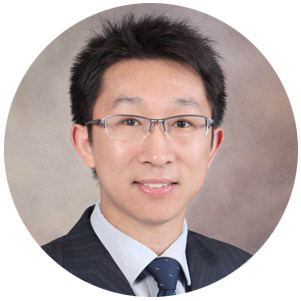Edison Tao, GPHR, is a seasoned human resources practitioner with extensive expertise spanning the biotech, new energy, and auto parts industries. Known for strategic HR planning, Edison excels in driving organizational change and leadership development.
new energy, and auto parts industries. Known for strategic HR planning, Edison excels in driving organizational change and leadership development.
What inspired you to pursue a certification from HRCI?
I have enrolled in the GPHR certification program. During the preparation stage, I extensively studied "International Human Resource Management, 6th Edition," which was recommended by Dr. Jorge Nomdedeu, along with other HRCI preparation materials. This book provides a wealth of knowledge and best practices for conducting business on a global scale.
As the wave of globalization continues to advance, it is crucial for Chinese companies to understand how to effectively manage a global business. HR leaders must study best practices and theories in order to prepare for these challenges, while obtaining an HRCI credential offers a systematic approach within the field of HR.
In your opinion, what is the most significant benefit of obtaining an HRCI certification and how will it help your career?
I believe that HRCI has accumulated a wealth of knowledge worldwide and possesses great insight into workplace-related matters. It consistently stays updated in a prompt manner, which is directly linked to real HR practices. As a result, I am confident that it will better guide HR leaders in adapting to consistent changes.
What advice would you give to those considering this certification?
For Asian HR professionals, the majority of us are non-native English speakers. It is recommended that you become familiar with glossaries and basic concepts as a first step. Additionally, it is important to understand the differences in HR practices, legal regulations, customs, and cultures between your country and the rest of the world when preparing for GPHR certification.
Who or what has been the biggest influence on your HR career and how have they helped shape your professional journey?
I was extremely fortunate to embark on my HR career shortly after China's accession to the WTO. At that time, foreign-invested companies offered numerous opportunities, affording me the chance to learn through practical experience. Within five years of graduating from college, I had already assumed a managerial role. Western companies had a profound impact on me, influencing my management philosophy and knowing many best practices. Additionally, numerous consulting firms, such as Mercer, the early Hay Group, and CCL, provided invaluable assistance by offering highly professional solutions.
Can you share any recent professional achievements or new developments in your HR career that you are particularly proud of?
As Chief Human Resources Officer (CHRO), I have been instrumental in spearheading strategic HR initiatives aimed at supporting a listed company with a workforce of 11,000 employees and over 20 billion RMB in revenue to regain organic growth of 20% annually in the past five years. In close collaboration with top executives, I have formulated and executed HR strategies, crafted new organizational structures to bolster business expansion, redefined competencies across various strategic business units (SBUs), and championed leadership and cultural transformations. It is worth noting that these transformations were implemented simultaneously across the corporate level, SBUs, and subsidiaries. I am immensely proud of my team, who now operate independently at a high level as trusted business partners and consistently earn praise from various business stakeholders. These achievements have been accomplished in a volatile, uncertain, complex, and ambiguous (VUCA) business environment, particularly within the Chinese context from 2018 onward.
What are your future career goals and how do you plan to continue growing and developing as an HR professional?
I am fully aware of the significant impact that AI will have on the entire workplace, regardless of whether the country is developed or developing. Given the potential impact of AI on HR management practices, it is imperative to redesign these practices to embrace AI capabilities, as this represents a new norm.
Consequently, I will be devoting additional time to learning in a more digital and intelligent manner. I will also focus on undertaking activities that add value. As the world becomes increasingly globalized in the AI era, I am keen to collaborate with HRCI to enhance the effectiveness of those who are venturing into the global market.
Looking ahead, what do you see as the biggest challenges and opportunities facing the HR industry in the coming years?
The most significant negative changes in recent years have been an increase in nationalism, a faster rate of global ageing, and conflicts between major economies. However, there have also been positive developments, including the acceleration of AI technology and the potential for humans to gain unprecedented capabilities in productivity, which could help solve global disequilibrium. It is my recommendation that a non-profit organization be established to provide training to people in developing and underprivileged countries on how to utilize AI tools in their daily work.
The HR industry is also undergoing significant changes, with an increasing number of companies hiring part-time employees to fill open positions.